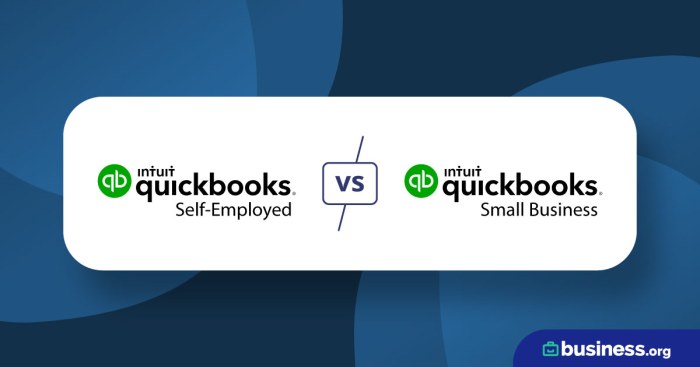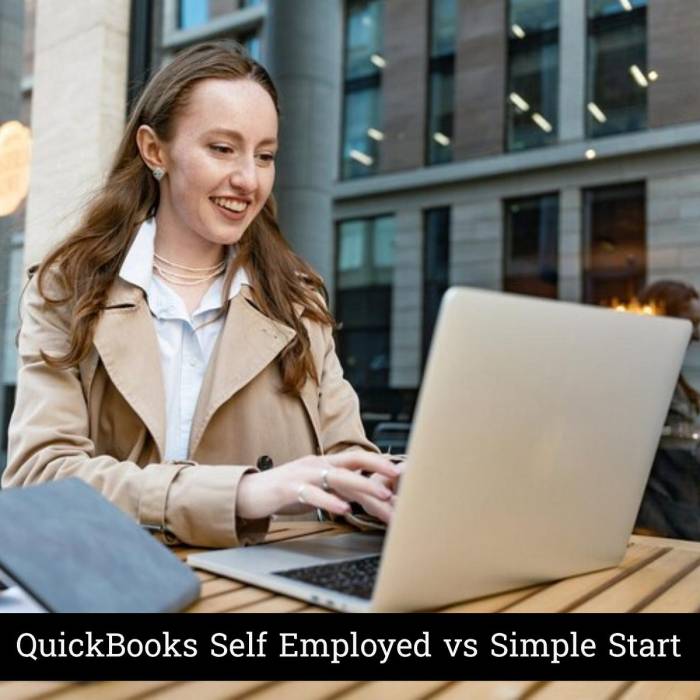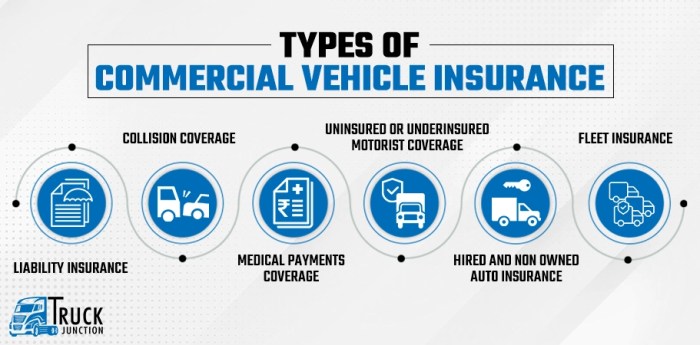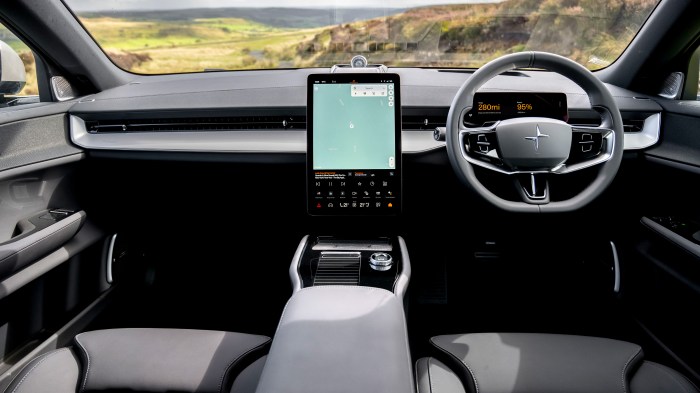Exploring the realm of QuickBooks Self Employed versus Traditional Accounting Software sheds light on the intricacies of financial management tools. Dive into this narrative filled with insights and revelations, guiding readers through the maze of modern accounting solutions.
Delve into the differences between QuickBooks Self Employed and traditional accounting software, uncovering the unique features and functionalities that set them apart.
QuickBooks Self Employed vs Traditional Accounting Software

QuickBooks Self Employed is a cloud-based accounting software designed specifically for freelancers, independent contractors, and self-employed individuals. It offers features tailored to the needs of small businesses and sole proprietors, making it easy to track income and expenses, manage invoices, and maximize deductions.Traditional accounting software, on the other hand, encompasses a wider range of functionalities suitable for larger businesses, including accounts payable/receivable, inventory management, payroll processing, and financial reporting.
These software solutions are typically installed on-premise and cater to the comprehensive needs of established companies.
Key Features of QuickBooks Self Employed
- Automated income and expense tracking
- Invoicing capabilities
- Mileage tracking
- Tax deduction tracking
- Integration with bank accounts and credit cards
Main Functionalities of Traditional Accounting Software
- Accounts payable/receivable management
- Inventory tracking
- Payroll processing
- Financial reporting and analysis
- Fixed asset management
Pricing Models of QuickBooks Self Employed and Traditional Accounting Software
- QuickBooks Self Employed:Offers a monthly subscription model with pricing starting at $15 per month. Additional features may require higher-tier plans.
- Traditional Accounting Software:Typically involves a one-time purchase or annual subscription, with costs varying based on the number of users and the functionalities required. Prices can range from a few hundred dollars to several thousand dollars.
User Interface
QuickBooks Self Employed offers a user-friendly interface designed specifically for self-employed individuals to easily manage their finances. The dashboard provides a clear overview of income, expenses, and tax deductions, making it simple to track business transactions.
QuickBooks Self Employed
- Intuitive dashboard with key financial information at a glance
- Easily categorize transactions for accurate financial tracking
- Create and send professional invoices to clients directly from the platform
- Automatic mileage tracking for easy deduction calculations
Traditional Accounting Software
Navigating traditional accounting software can be more complex and overwhelming for those without a background in accounting. The interface often includes multiple tabs, menus, and settings that may require some learning curve to navigate efficiently.
- Multiple tabs and settings can be overwhelming for beginners
- Requires manual entry and categorization of transactions
- Invoicing and client management may be more complicated
- Mileage tracking and other deductions may not be as automated
Comparison
In comparison, QuickBooks Self Employed offers a more streamlined and user-friendly interface tailored to the needs of self-employed individuals. The simplicity of the dashboard and automated features make it easier to manage finances without the complexity often associated with traditional accounting software.
Customization and Scalability

When it comes to managing finances for a growing business, customization and scalability are key factors to consider. Let's explore how QuickBooks Self Employed and traditional accounting software stack up in these areas.
Customization in QuickBooks Self Employed
QuickBooks Self Employed offers a high level of customization for users to tailor their accounting experience to their specific needs. Users can create custom invoices, track expenses, and categorize transactions based on their business requirements. This flexibility allows self-employed individuals to efficiently manage their finances without unnecessary features that may not be relevant to their business.
Scalability in Traditional Accounting Software
Traditional accounting software often provides more scalability options for growing businesses compared to QuickBooks Self Employed. With traditional accounting software, businesses can easily expand their operations, add more users, and integrate additional modules for more complex financial management needs. This scalability is essential for businesses that are rapidly growing and require a more robust accounting system to support their expanding operations.Overall, while QuickBooks Self Employed offers great customization options for self-employed individuals, traditional accounting software provides better scalability options for businesses looking to grow and expand their operations.
Integration Capabilities
When it comes to accounting software, integration capabilities play a crucial role in streamlining processes and increasing efficiency. Let's delve into the integration options of QuickBooks Self Employed and compare them with traditional accounting software.
QuickBooks Self Employed Integration
QuickBooks Self Employed offers seamless integration with a variety of tools and platforms to enhance user experience and productivity. Some of the key integration options include:
- Integration with popular payment gateways like PayPal and Square for easy transaction tracking.
- Integration with banking institutions to automatically import and categorize transactions.
- Integration with mileage tracking apps to accurately record business travel expenses.
- Integration with tax preparation software for simplified tax filing processes.
Traditional Accounting Software Integration
On the other hand, traditional accounting software may have limited integration capabilities compared to QuickBooks Self Employed. Some traditional accounting software options may offer integrations with basic tools like Excel or email clients, but the options are often limited. This can lead to manual data entry and more room for errors.
Importance of Seamless Integrations
Seamless integrations are essential for efficient accounting processes as they eliminate the need for manual data entry, reduce the risk of errors, and save time. By integrating accounting software with other tools and platforms, users can automate repetitive tasks, gain real-time insights, and ensure data accuracy.
This not only improves productivity but also allows businesses to make informed decisions based on up-to-date financial information.
Epilogue
In conclusion, the comparison between QuickBooks Self Employed and Traditional Accounting Software unveils a landscape of choices for businesses seeking efficient financial management solutions. With a focus on user experience, customization, scalability, and integration capabilities, each option offers a distinct approach to modern accounting practices.
Expert Answers
How customizable is QuickBooks Self Employed compared to traditional accounting software?
QuickBooks Self Employed offers limited customization options compared to traditional accounting software, which often provides more flexibility in tailoring features to specific business needs.
What are the main pricing differences between QuickBooks Self Employed and traditional accounting software?
QuickBooks Self Employed typically offers subscription-based pricing geared towards self-employed individuals, while traditional accounting software may have one-time purchase or tiered subscription models catering to larger businesses.
Can QuickBooks Self Employed seamlessly integrate with other tools and platforms?
QuickBooks Self Employed has integration capabilities with select tools and platforms, but the options are more limited compared to traditional accounting software, which often offers a wider range of integrations for seamless workflow.









